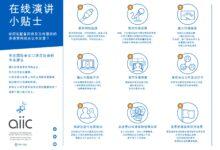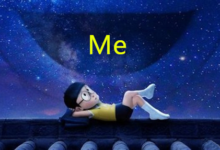Am I An Adult Yet?
I turn 39 soon. Even though I’ve already suffered through a midlife crisis, I still don’t feel like an adult. In fact, I feel I’ve grown less mature as the years have progressed.
I was a very mature kid. By the time I turned 10 I had lived in two houses, four apartments and attended at least as many schools. By the time I was 14 I had been through my parents’ divorce and a custody battle. By the time I graduated high school, I was pretty sure I knew who I was and what I wanted.
I was rebellious, said “No” a lot (loudly), and was frustrated by my inability to make choices I thought were mine to make.
When I turned 30, I married, had a son, and became as tired and cranky as a newborn.
Since then I’ve started growing up again. But I’m not sure I’ve quite crossed the threshold into adulthood.
I asked my 8-year-old son, Colter, what makes someone an adult. He said adults:
Go to work
Can cook
Have money
Are 20 or older
Are married
Are parents
I’ve done all those things and yet I’m not quite there.
My husband, Gary, remembers the first time he felt like an adult. He was 14 years old and working behind the counter of a balloon-popping game at an amusement park. Kids called him “sir” because he had the authority to hand them darts.
Fourteen is hardly a magic age; some cross the threshold into adulthood when they turn 18 and can vote, turn 21 and can drink legally, graduate from school, buy a first home, notice the first gray hairs or notice they’ve started falling out.
“Coming of Age in 21st-Century America,” a study conducted by researchers at the University of Chicago, describes seven stages in the transition to adulthood.
The report, based on the 2002 General Social Survey of 1,398 people, also determined when people generally expect young people to complete the transitions. Becoming self-supporting is the first step (20.9 years old), living independently of parents (21.1), having a full-time job (21.2), completing schooling (22.3), being able to financially support a family (24.5), getting married (25.7), and having a child (26.2).
But an Associated Press story following the survey reported that many 20 somethings did not feel these milestones were ones that marked them as adults.
Living at home longer than previous generations, living with partners longer before marriage and having careers before having children can all contribute to a trend of “delayed adulthood.”
Whatever the factors that are causing it, much of society seems to be embracing the notion. And a whole line of increasingly common sayings are indicating a ripple effect-“30 is the new 20” and “40 is the new 30,” and so on. Elaine Wethington, a sociologist in the department of human development at Cornell University, believes the sayings have a ring of truth.
Wethington says that parents may be contributing to this delay by holding on to their kids a little longer than previous generations did. They let them live at home after college. They bankroll them for years. They allow their children to remain kids when they’re capable of taking responsibility for themselves.
This phenomenon reminds me of a recurring conversation I had with my parents that went something like this.
My parents: “When are you going to grow up?”
Me: “When are you going to start treating me like a grown-up?”
This circular conversation captures some truth. When my parents, my boss, my husband, my child clearly expect me to behave like an adult, how can I deny that I am one?
And yet even after I began to work full time, earned money, was married, and became a parent, I discovered those experiences transformed me-and aged me-but didn’t land me in that elusive place I believed adulthood would take me, a peaceful, serene place where all the answers resided.
The reason I haven’t arrived, of course, is that no such place exists. Adulthood isn’t a place, a final destination we arrive at after years of growth, it’s a role we enter and exit. The door swings both ways, and each of us holds our own set of keys.
ADULTHOOD?
I’ll know I’m grown up when:
The man snoring on the couch is my husband, not my father
I say, “It’s funny until someone gets hurt.”
I file my taxes before April 15
My retirement account exceeds my student loan balance
我是成年人吗?
很快我就39岁了,也遭遇过中年危机,可尽管这样,我还是没觉得自己是个成年人。相反,随着年岁的增长,我觉得自己变得越来越不成熟。
我一直认为自己是个成熟的大小孩。在我10岁之前,我已经在两幢房子、四间公寓里居住过,中间还转学多次。在我14岁的时候,我的父母离异,他们还就我的抚养权问题纠缠不休;等我高中毕业的时候,我已经很了解自己,也知道自己到底要什么。
我很叛逆,常常大声地拒绝他人,也很痛恨自己――明明是自己的事情,可自己还要容忍别人的摆布。
在我30岁的时候,我结了婚,还有了个儿子,可我感觉自己就像新生儿一样:疲倦而且脾气暴躁。
从那时起,我又继续开始成长。可我不敢肯定自己已经进入了成年期。
我问我八岁的儿子科欧特,问他眼里的成年人是有什么特点。他说成年人:
要去上班
会煮饭
有钱
年纪至少在20岁以上
结了婚
有了孩子
这些明明我都完成了,可为什么我就没感觉自己已经是个成年人了呢?
我丈夫格瑞讲起了他第一回做大人的感觉。那年他14岁,在一个娱乐场打零工,他在柜台后面帮忙打理射气球游戏。很多小孩都管他叫“先生”,就是因为他有权力给他们派飞镖。
其实14岁也说不上是界限年龄;有些人过了18岁有了选举权的时候也就进入了成人期;而过了21岁以后,就可以合法地喝酒,可以从大学毕业,第一次买房子,注意到头上有了第一根花白头发,或是头发开始往下掉。
芝加哥大学的研究人员进行了一项名为“21世纪美国年龄问题”的调查,并总结出了代表成年的七大阶段。
这份社会调查报告总共采访了1398人,它也说明了公众对青年人进入人生角色的期望年龄。自立是第一步(20.9岁),与父母分居(21.1岁),有一份全职的工作(21.2岁),完成学业(22.3岁),给家庭提供经济资助(24.5岁),结婚(25.7岁),生小孩(26.2岁)。
可根据美联社随后就这调查展开的报道,很多二十出头的年轻人并不认为这些就是标志他们进入成人的转折点。
与前辈们相比,现在的年轻人呆在家里的时间更长,在结婚之前与伴侣同居的时间也被拉长,在孩子与事业之间,他们更多地选择事业,这些都导致了“成人期的滞后”。
不管是哪种原因导致这个现象,社会都会保持包容的态度。一些越来越普遍的说法也说明了这个连锁反应――“现在30岁的人其实就是过去20岁的人”,“现在40岁的人其实就是过去30岁的人”等等。康纳大学人类发展研究的社会学者伊莱恩?威新顿就认为这些说法有一定道理。
伊莱恩认为父母得为年轻人的“成人期滞后”承担一定的责任,因为他们任由年轻人长时间地呆在家里,即使这些年轻人已经大学毕业;父母们还继续给他们的子女以金钱的资助;在子女能独立承担责任的时候,父母们还是依旧当他们是小孩。
这也就让我想起了我与我父母的对话,很多时候我们都会陷入这样的僵局。
我父母:“到底什么时候你才能长大呢?”
我:“当你们真正当我是大人的时候!”
类似这样没完没了的对话包含着一定的道理。当父母、上司、丈夫、孩子明确要求我要以成年人的规范表现的时候,我又怎能漠视我已经是成年人的事实呢?
可自从我开始全职工作,开始赚钱,结婚生子以后,我发现这些经历在慢慢转变我――也让我逐渐衰老――可我依旧没有找到成人的那种感觉,那种包藏着答案的地方,平静祥和的地方。
当然了,我之所以没达到,是因为根本就没有这样的地方。成人期根本就不是个地方,不是我们多年成长的终点,它只是我们进与出的一个角色。这扇门会朝两边摇摆,而钥匙就在我们身上。
成人
我知道我已经是成人了,当:
在沙发上打鼾的是我丈夫,而不是我父亲
在每年4月15号前填写好税务报表
我的退休金高出了我的助学金












